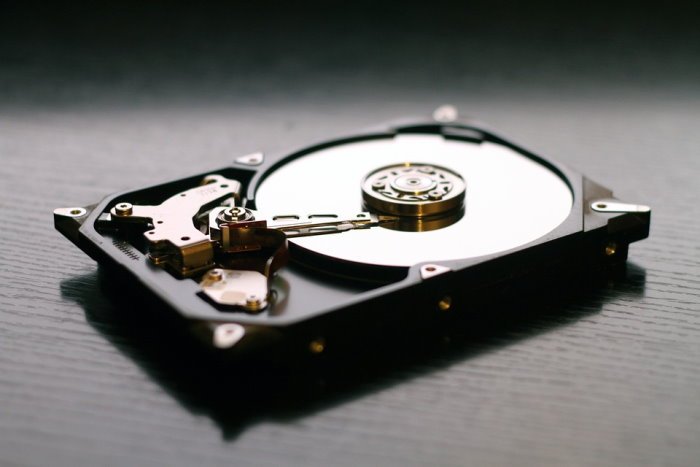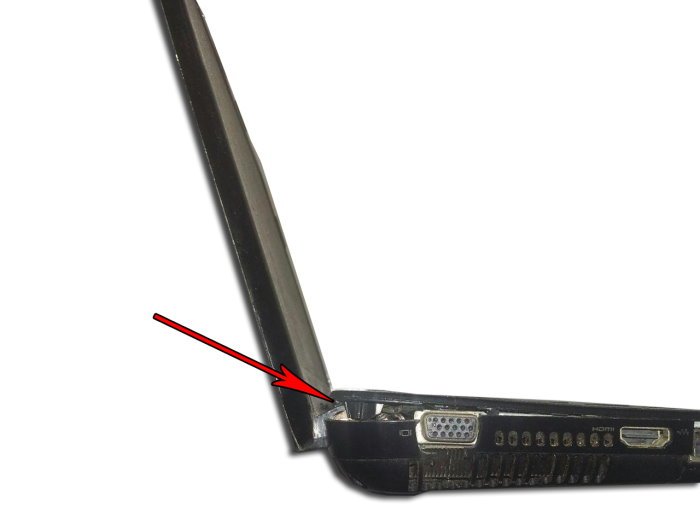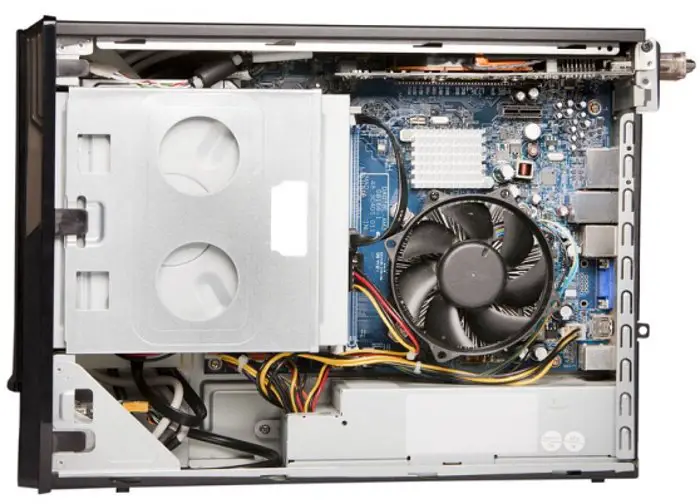PCs, like anything else, will have a lifespan. Regardless of how expensive a PC is or how nicely you treat it, PCs will either crash or die after a time. In most cases, there are signs that you will see before the PC crash or die. Usually, a PC crashing is a sign that a component or the whole PC will die soon if steps are not taken.
Nothing can be done in some cases because the component has reached its lifespan. Technically a PC does not all die, but all components are needed so it might just have to shut down until the damaged components are repaired or replaced. In other cases, replacing the whole PC is much better than replacing or repairing a component.
PCs can die due to several factors including overheating, power surges, hardware failures, and prolonged wear and tear. Overheating is a common cause, where internal components reach damaging temperatures, leading to potential data loss or system shutdown to prevent further damage. Regular maintenance can help prevent premature PC death.
There are signs that, if overlooked, they will eventually cause the PC to die. It is like overlooking a problem in your car that eventually grows into a much larger problem.
Signs that your computer is nearing a crash include frequent freezing or the ‘blue screen of death,’ slow performance, unusual noises from the hard drive, constant error messages, and programs not responding. Regular backups and monitoring system health can mitigate crash impacts.
When PCs crash it usually sudden and usually require some time or work to get them back up, usually data may be lost. In some cases, they must be replaced rather than repaired. The best thing to do is to try and minimize the crashes or to minimize data loss as much as possible
Warning signs that your PC is going to crash or die
Here are some things that are an indicator that your Windows PC is going to crash or die:
- Constantly overheating (cooling system failure)
- Boot errors
- Noisy Hard Drive
- PC becomes slower
- An unusual number of pop-ups windows
- Random files or programs become corrupt
- Color flashes or changes in screen
- Loss of function in webcam, mic, wireless receiver (laptop)
- Creaking of hinges or opening of the casing at the sides.
You may experience one or more of these signs at some point. These are warning signs that something is up. It might not happen right away, but PCs sometimes break at the most critical point. If you experience one or more of these signs, take action to prevent your PC from crashing or dying. While your PC will inevitably crash or die at some point, it does not have to take all your information with it. It is extremely important that you back up important files to prevent loss.
1] Constantly overheating
When you buy a new PC, whether desktop or laptop, you will notice that it runs very quietly. Over time, you will start to hear the cooling fan. This is due to a few things happening as the PC ages. The fan is getting clogged with dust and lint, the bearings in the fan is wearing out, and the PC is getting hotter than normal.
Heat is a natural result of movement and processing; a PC will heat up as it works. Depending on the overall heat of the surroundings, the PC will be hotter or cooler. The heat of the PC will also be dependent on how clear the vents are. A PC’s processor usually gets extremely hot, so a heat sink with copper tubing and a fan is placed on top of it to move heat away. Sometimes, thermal paste is placed between the heat sink and the processor. Vents might be blocked, and the thermal paste might have dried up. There might be excess dust and lint blocking the airflow or making the cooling fan malfunction, causing cooling system failure.
This cooling system failure may cause shutdowns or prevent booting up. Some PCs are designed to crash as a method to prevent permanent system damage if they begin to overheat. Constant high heat will eventually cause the PC’s components to fail which will cause it to crash and cause loss of data.
Read: Tips to physically clean your Windows computer.
2] Boot errors
Occasional boot errors when attempting to start a PC is a sign that a component is not functioning properly, and the PC will eventually crash. Hardware or software problems could be causing these boot errors.
A cooling fan failure or obstruction could cause a boot error. Boot errors can be a sign that the hard drive is not working properly and could be close to the end of its life. Boot error could also be a sign that Windows has become corrupt and need a fresh install. Hard drive failure will require a new hard drive and a reinstall of Windows. If Windows files are corrupted, this will require a fresh install of Windows.
Read: How to tell if Monitor is dying?
3] Noisy Hard Drive

Mechanical hard drives tend to wear out eventually because of all the moving parts. Sounds like clicking or grinding are sounds that indicate that the hard drive is dying. Clicking and grinding sounds point to a mechanical problem with either the platter or motor, which will eventually completely break down and will no longer be able to operate. Whirring noises are a little harder to detect as they are not as loud as the clicking or grinding noise. These sounds indicate that the hard drive is struggling to effectively write data onto the disc. This could indicate that the platter has developed bad sections on it, or that the lens is not able to write smoothly anymore.
Read: How long does the average Windows PC last?
4] PC becomes slower
Your PC could become slower for a lot of reasons and some of these reasons could be software related. Unused software could be taking up valuable space on your hard drive. As the hard drive gets full, it becomes increasingly harder for data to be written to it. If the hard drive is full it will stop working. Delete unnecessary files, clean up old files, and back up software and other files off the hard drive to free up some space.
Read: How to protect your Computer from Power Outages and Surges?
5] Unusual number of pop-up windows
Not protecting yourself online can expose your computer to a lot of threats. The internet is full of malicious advertisements that are sometimes adware. Modern adware has become so advanced, you do not even have to click on them to be infected, all you have to do is open the page. Adware and other malicious software involve many different spy programs that work on the back end and can overwhelm a PC, causing it to crash. You may get an unusual number of popups that makes it difficult to use the PC, this eventually causes the PC to crash.
Read: How to check Computer Health in Windows
6] Random files or programs become corrupt
Over time, certain files or programs will become corrupt. However, without backup, these files or programs will be lost. There may be several reasons for files to become corrupt and these include, the inability of hardware to store data accurately, power-related issues, sudden or unexpected shutdowns, failing software, or viruses. Most of these issues are caused by underlying problems and should be investigated to prevent future data losses.
Read: Things that can damage your Computer and shorten its life.
7] Colour flashes or changes in screen
Whenever there are color flashes in the screen or changes on the color, there is a problem.
In a desktop PC, this could be a simple problem in the VGA cable and can be fixed with a simple change of the cable. It could also mean that the video card or the video card slot is developing a problem, this might be a more expensive fix.
In a laptop, this could also mean problems with the video card connection, either on the motherboard or monitor. In a Laptop, this is usually more expensive to fix. It could also mean that the motherboard has a fault such as honeycombing and may need replacing.
This issue could result from an aging PC and may have been unavoidable. This issue could also be because of improper handling of the PC. This could have been caused by lifting the laptop by the screen, closing it while an object is on the keyboard, dropping, or bending the screen too far back.
In a desktop PC, this can be because of improper plugging or unplugging of VGA cable which can damage the cable or VGA card.
Read: How to keep your motherboard clean and protected?
8] Loss of function in webcam, mic, wireless receiver
The loss of the function of some devices on a PC may be the first sign that the PC is going to crash or die. When devices such as webcams, microphones, and wireless receivers on your PC start to malfunction, it could mean that they are having software or hardware problems. Software could become corrupt which points to underlying problems.
Hardware can malfunction due to physical issues or prolonged high heat and dust. In a laptop, the webcam, microphone, and sometimes the wireless receiver is connected to the motherboard and runs up to the monitor. When these fail it could mean that there is some issue with the monitor and that it will eventually malfunction. This can be particularly devastating because the laptop will be useless until repaired, or have an external monitor connected. This problem can be caused by lifting the laptop by the monitor or bending it back more than it was meant to go.
Read: What are the signs of RAM failure and how to check faulty RAM?
9] Creaking of hinges or opening of the casing at the side
 Creaking hinges is a commonly overlooked issue that is found in laptop PCs and not desktops. The creaking is mostly due to hinges that are too tight. This will affect some laptop case designs more than others. The hinges will creak when opening and closing and may eventually cause the screws that hold the upper and lower parts of the case together to become loose. The hinges will then push up the monitor’s video connection and power connection and may break these delicate wires.
Creaking hinges is a commonly overlooked issue that is found in laptop PCs and not desktops. The creaking is mostly due to hinges that are too tight. This will affect some laptop case designs more than others. The hinges will creak when opening and closing and may eventually cause the screws that hold the upper and lower parts of the case together to become loose. The hinges will then push up the monitor’s video connection and power connection and may break these delicate wires.
This strain may also cause the casing to crack and become warped or the sides to become opened. This opening will cause an excess intake of dust and other objects. The warping of the case can obstruct the ventilation fan, causing it to malfunction. This can cause low or no cooling and then permanent damage to the laptop PC. If there is a creaking when opening or closing the laptop’s lid, or if it is unusually tight, try to loosen a bit.
PCs rarely crash or die without warning signs. The best PC will eventually crash or die at some point. You can practice proper PC maintenance and handling to make your PC last longer. When a PC crashes or dies, it is sometimes the loss of data stored on it that is the hardest loss.
To prevent loss of data, it is best to backup regularly. understanding and taking actions when there are warning signs is important to preserving data and PC. Note that a computer crashing or dying is sometimes related to how well it is maintained and not how old it is.

Leave a Reply